Deep Learning: Multilayer Perceptrons and Backpropagation
Here is my Deep Learning Full Tutorial!
Feedforward Neural Networks
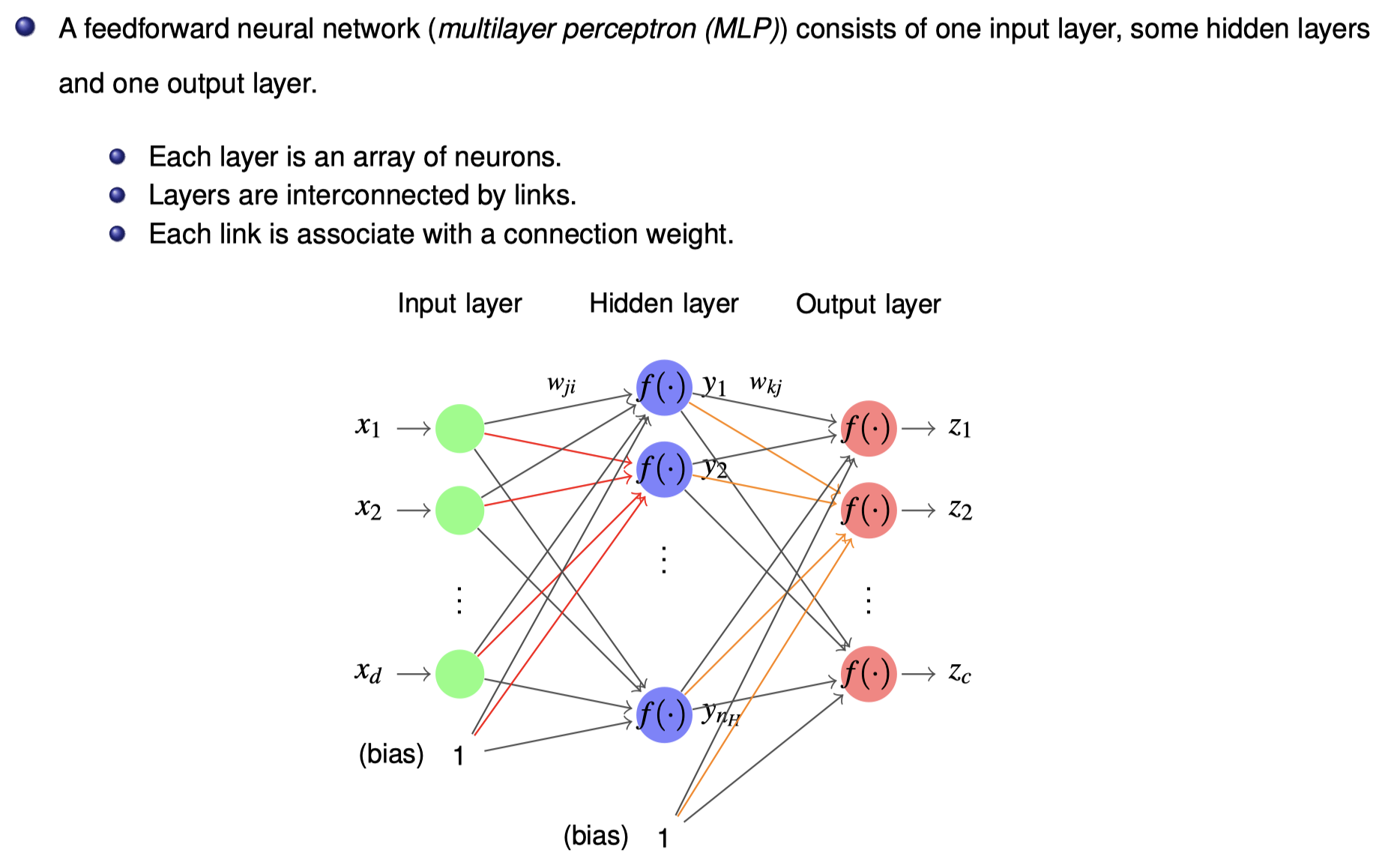
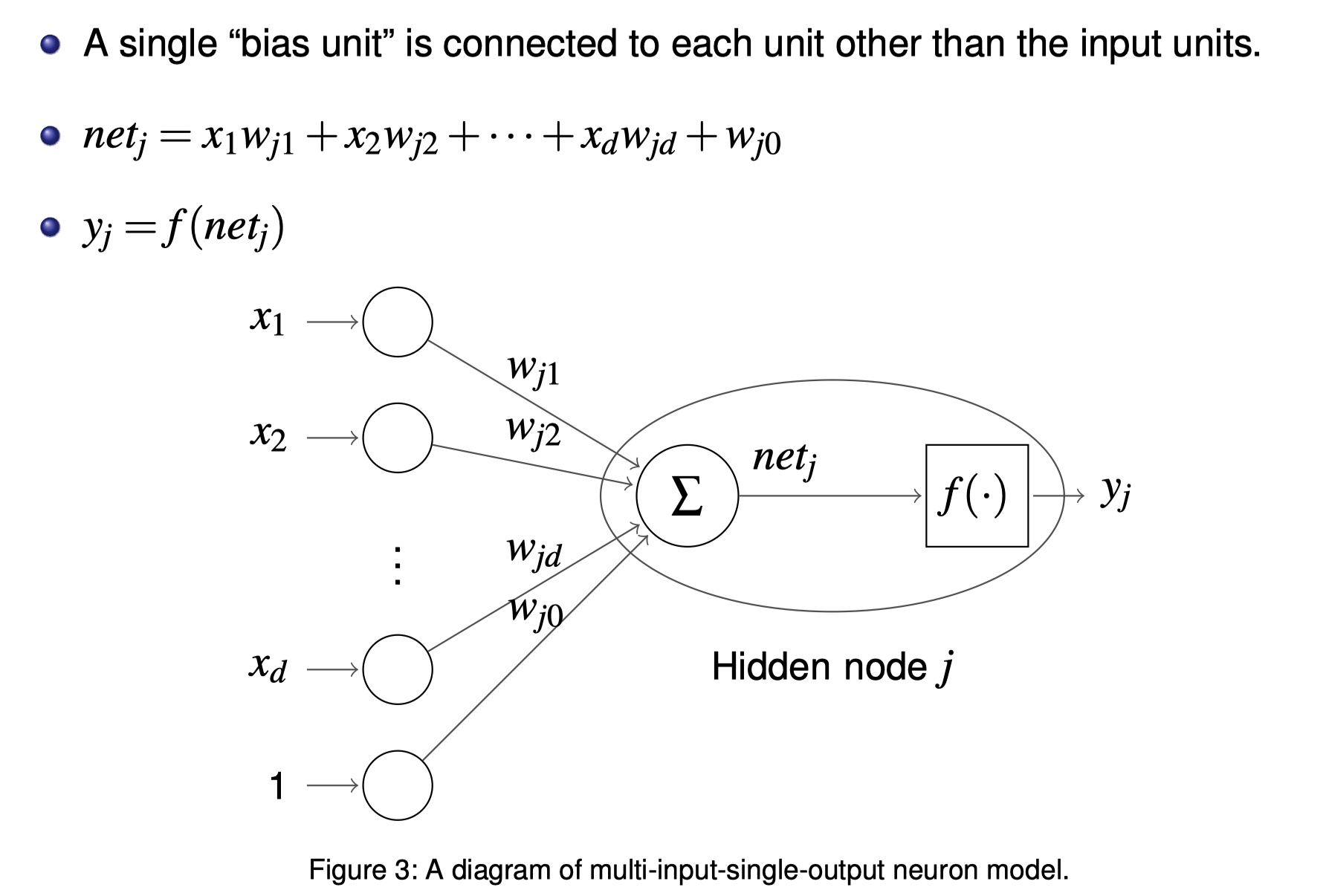
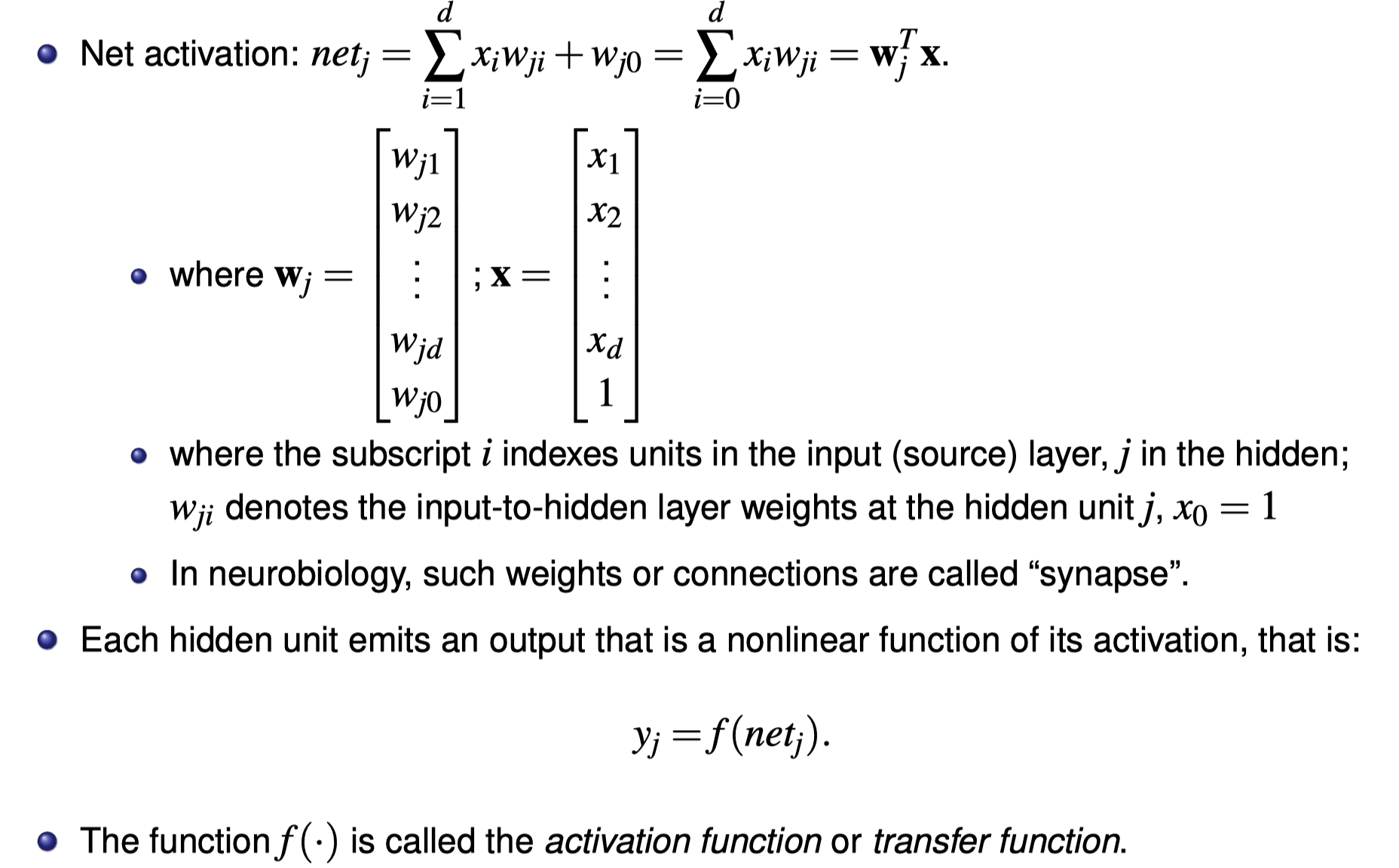
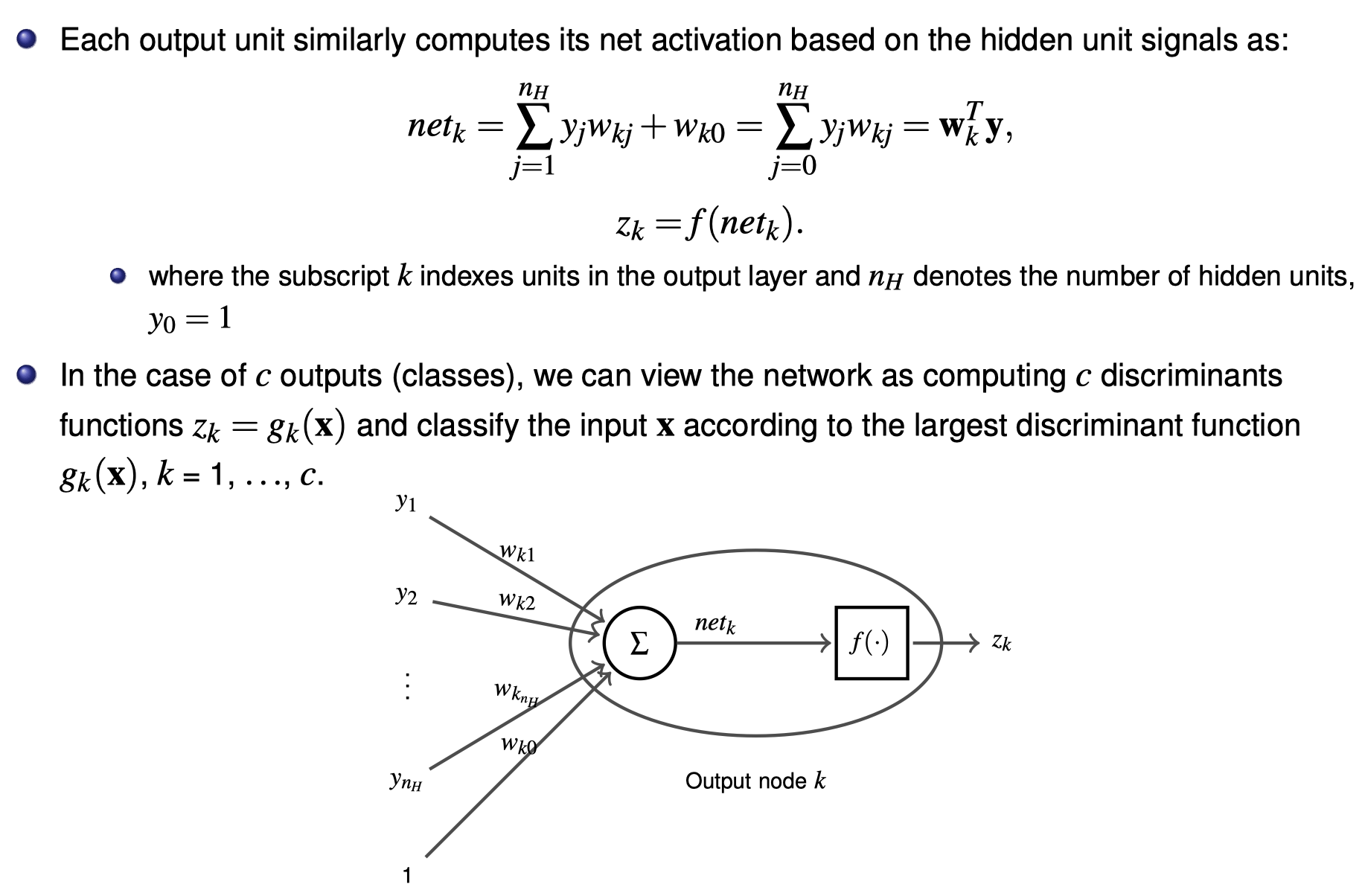
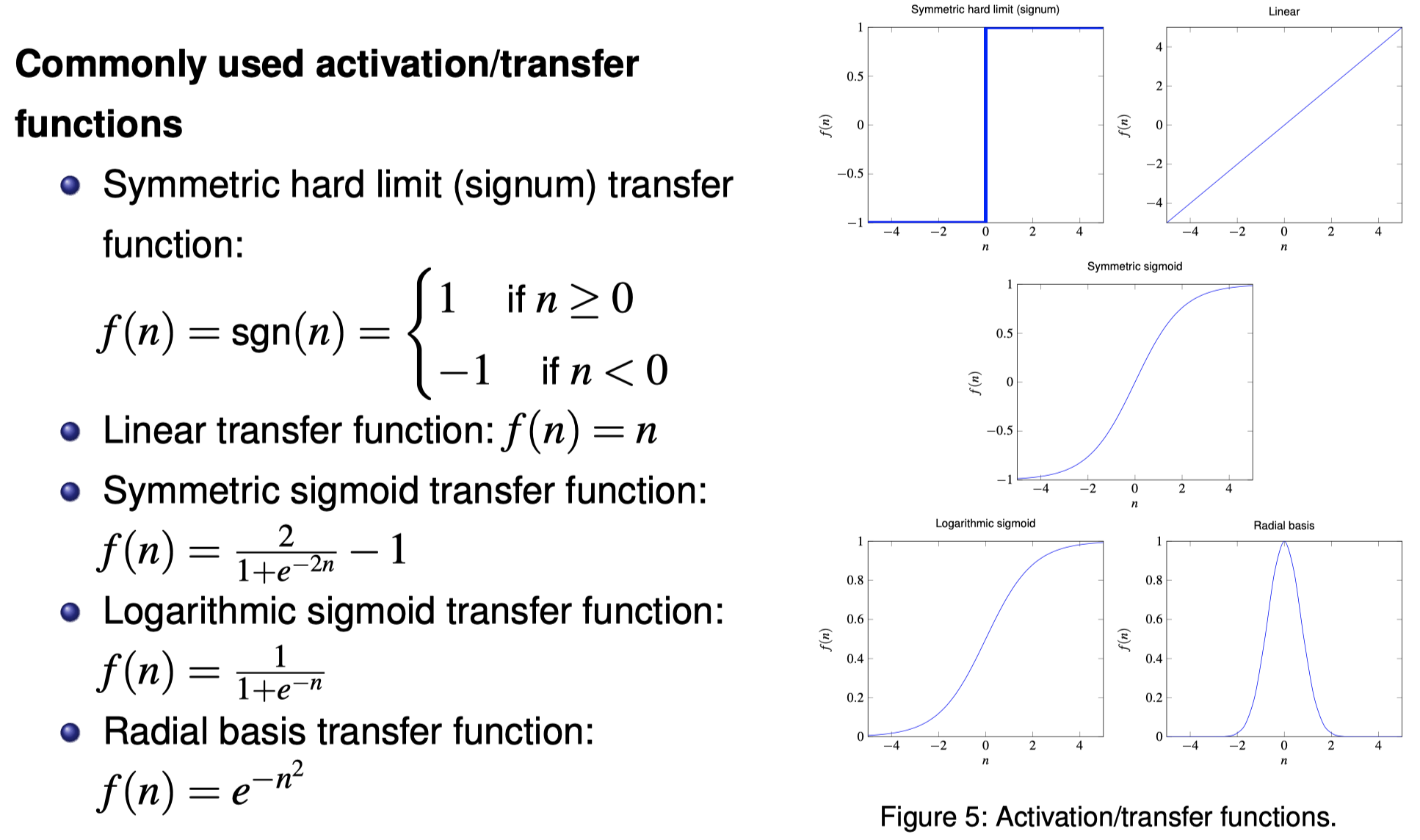
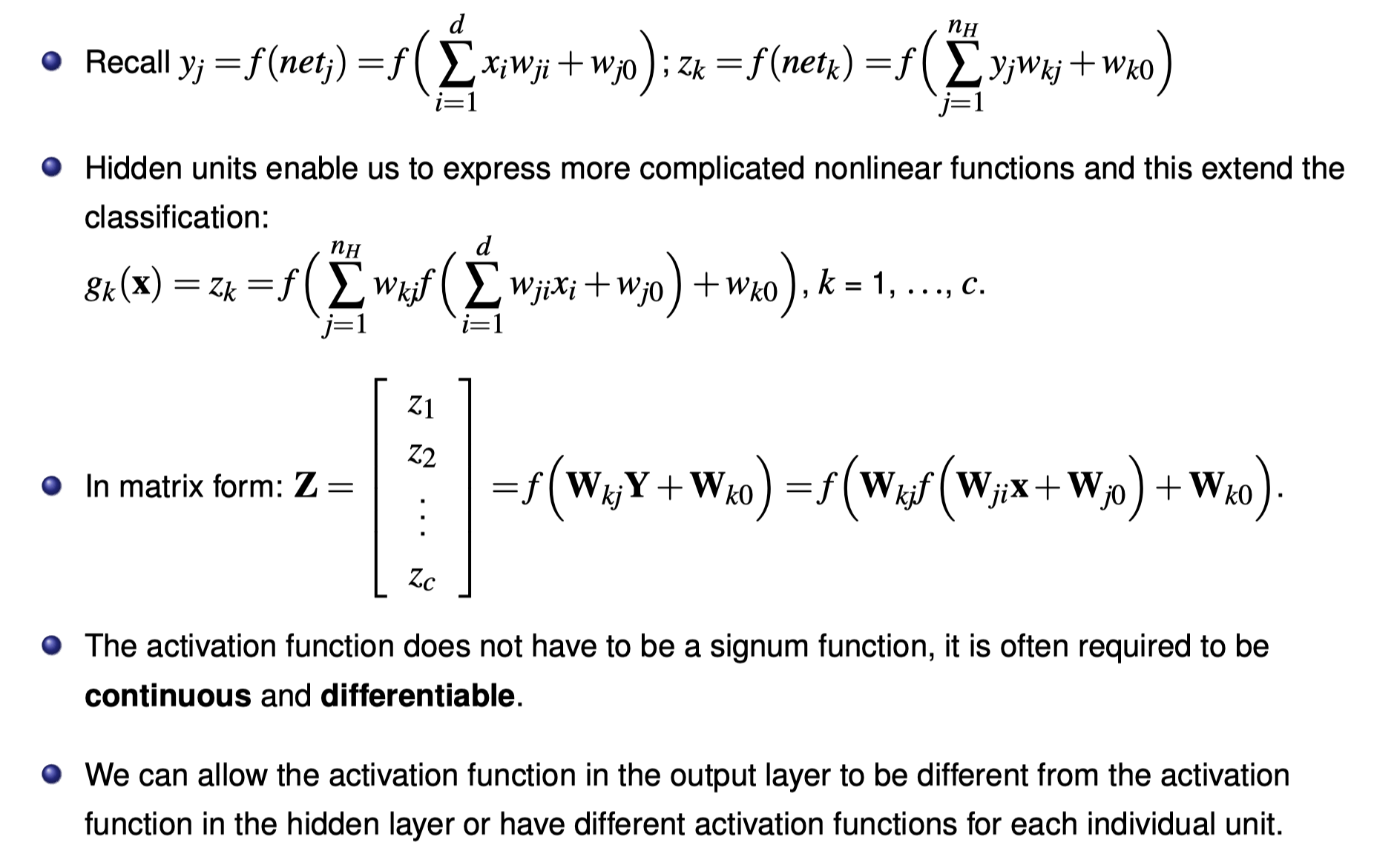
Feedforward Neural Networks Python code
1
2
3
4
5
6
7
8
9
10
11
12
13
14
15
16
17
18
19
20
21
22
23
24
25
26
27
28
29
30
31
32
33
34
35
36
37
38
39
40
41
42
43
44
45
46
47
48
49
50
51
52
# Feedforward Neural Networks
import numpy as np
from prettytable import PrettyTable
import math
np.set_printoptions(suppress=True)
def log_sigmod(input):
return 1. / (1. + np.exp(-input))
def d_log_sigmod(input):
# e^(-x)/(1+e^(-x))^2
return np.exp(-input)/((1+np.exp(-input))*(1+np.exp(-input)))
def sym_sigmod(input):
ex = np.exp(input)
enx = np.exp(-input)
return (ex - enx) / (ex + enx)
def d_sym_sigmod(input):
# 4e^(-2x)/(1+e^(-2x))^2
return 4*np.exp(-2*input)/((1+np.exp(-2*input))*(1+np.exp(-2*input)))
def linear(input):
return input
def cost(y_pred,y):
return 0.5*(y_pred-y)*(y_pred-y)
def d_cost(y_pred,y):
return y_pred - y
# input data
X = [[0.4,-0.4]]
w1 = [
[5,3],
[-5,-5],
[5,-2]
]
b1 = [-1,-3,4]
w2 = [
[5,-1,-5],
[5,1,-1]
]
b2 = [-4,1]
# input layer to hidden layer
y1 = sym_sigmod(np.dot(X,np.transpose(w1)) + b1)
z = np.dot(y1,np.transpose(w2)) + b2
print(np.dot(X,np.transpose(w1)) + b1)
print(np.round(y1,4))
print(np.round(z,4))
print(np.sum(np.power(z[0] - np.array([-5,5]),2)/2))
Output
1
2
3
4
[[-0.2 -3. 6.8]]
[[-0.1974 -0.9951 1. ]]
[[-8.9918 -1.9819]]
32.34093671219539
Backpropagation Algorithm
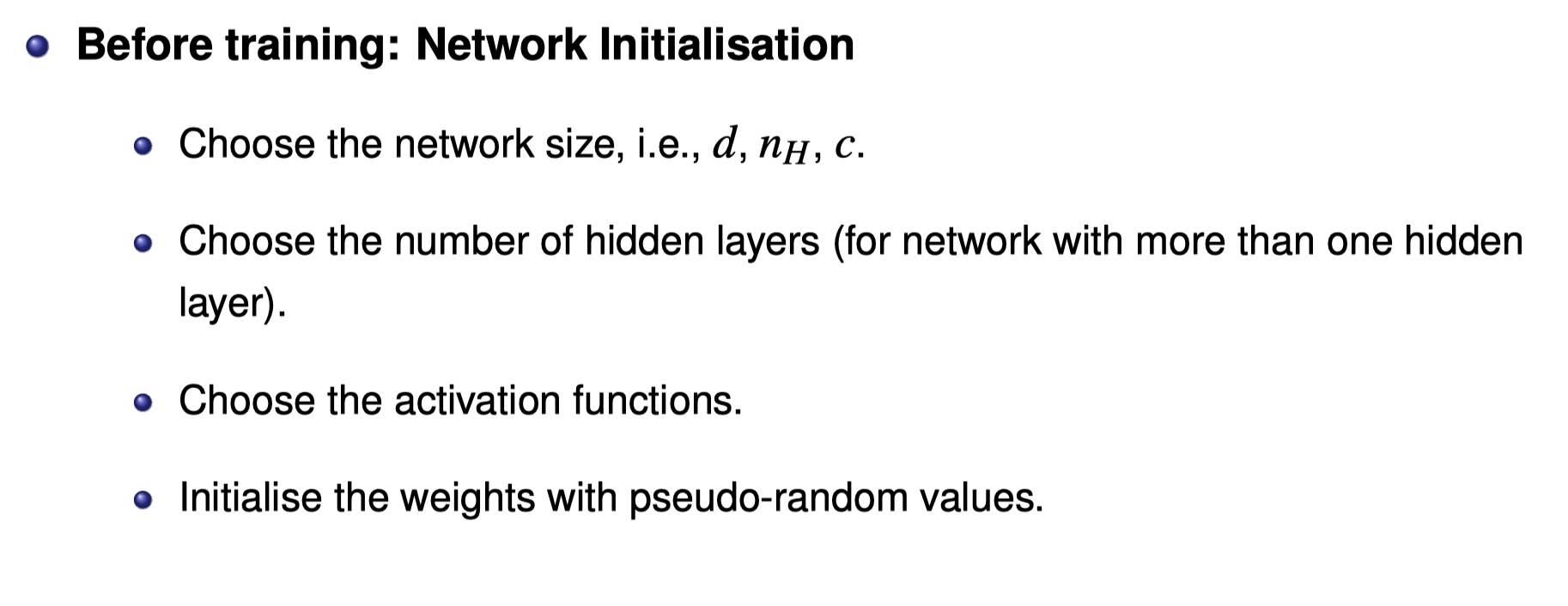
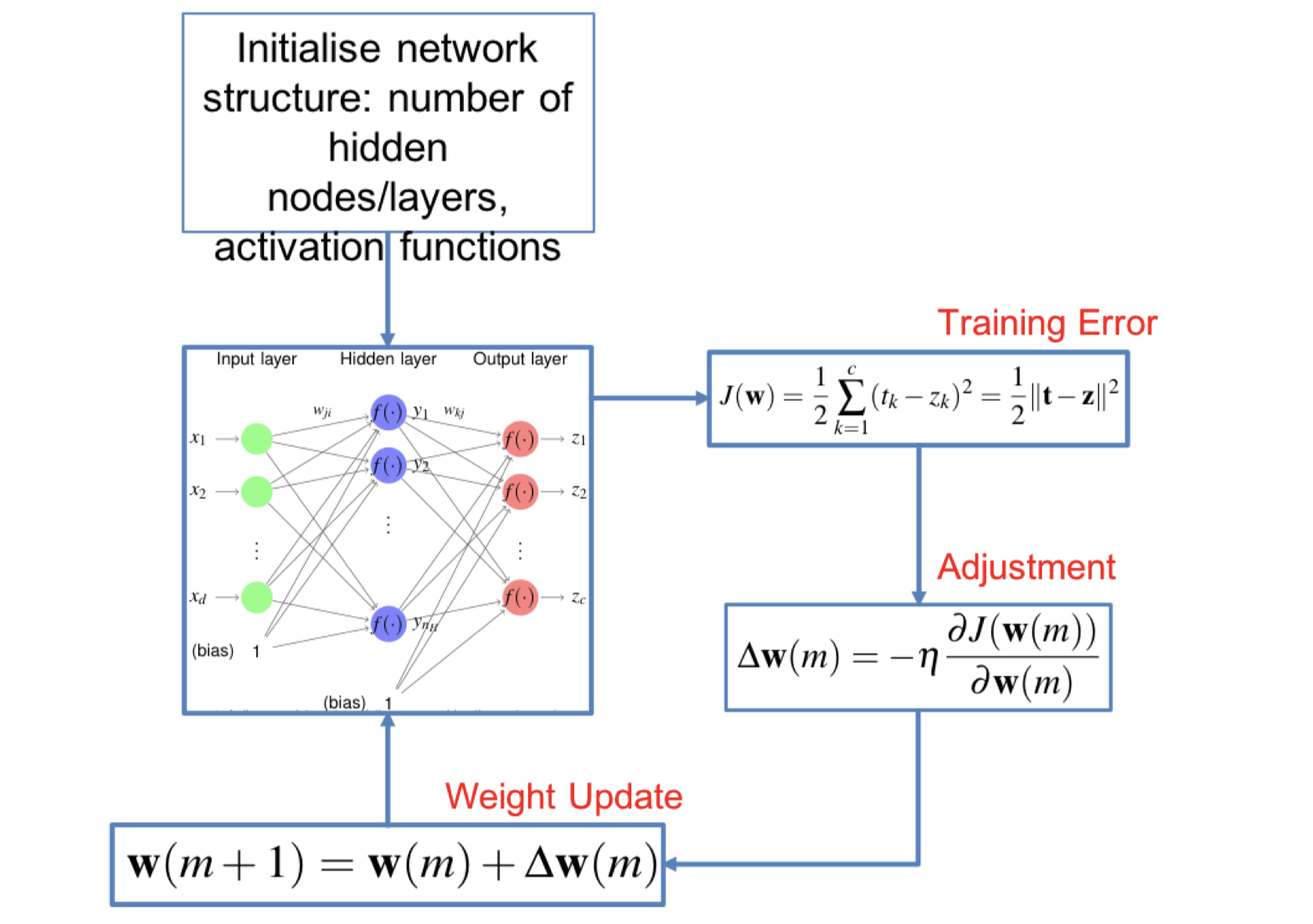
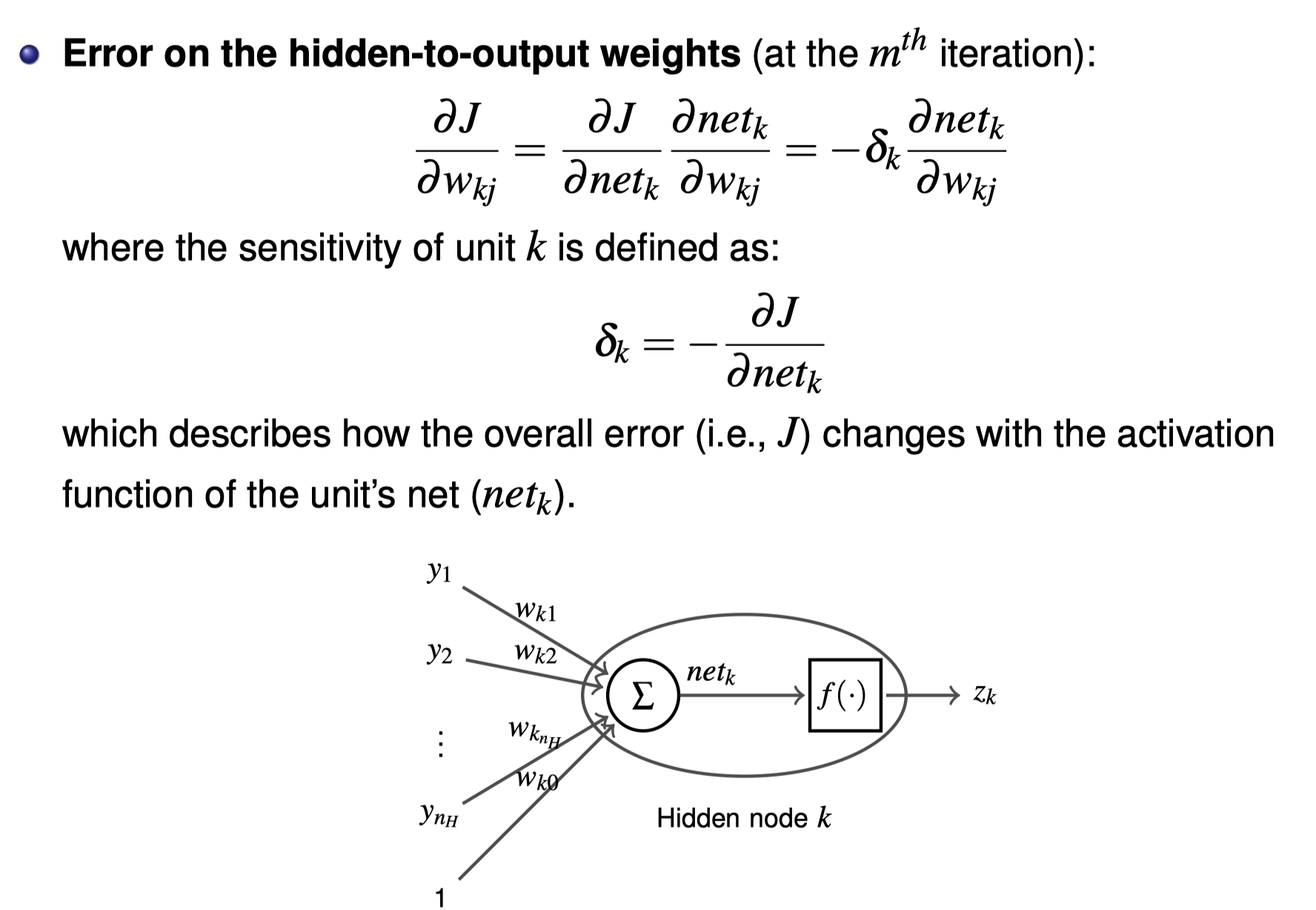
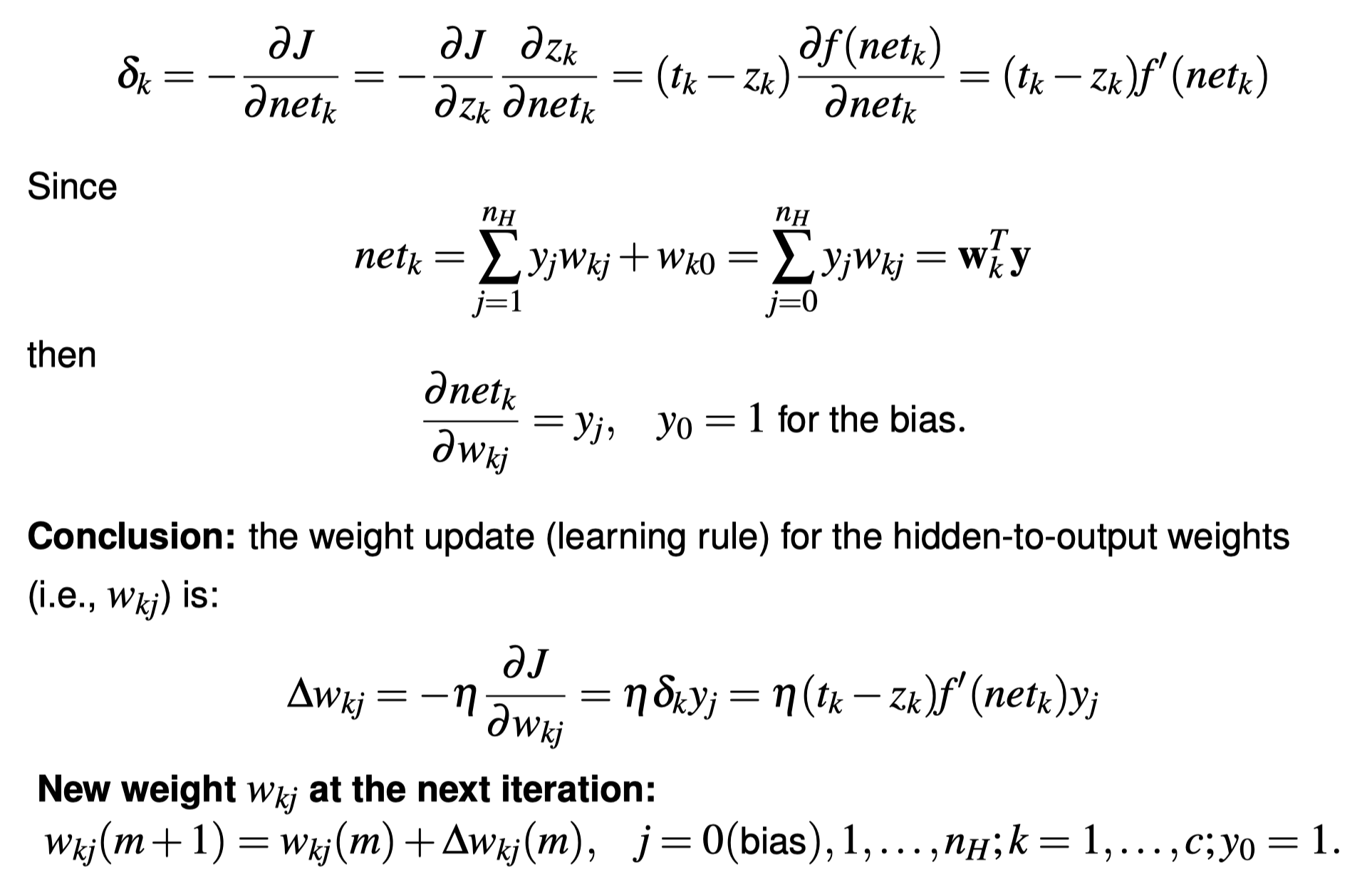
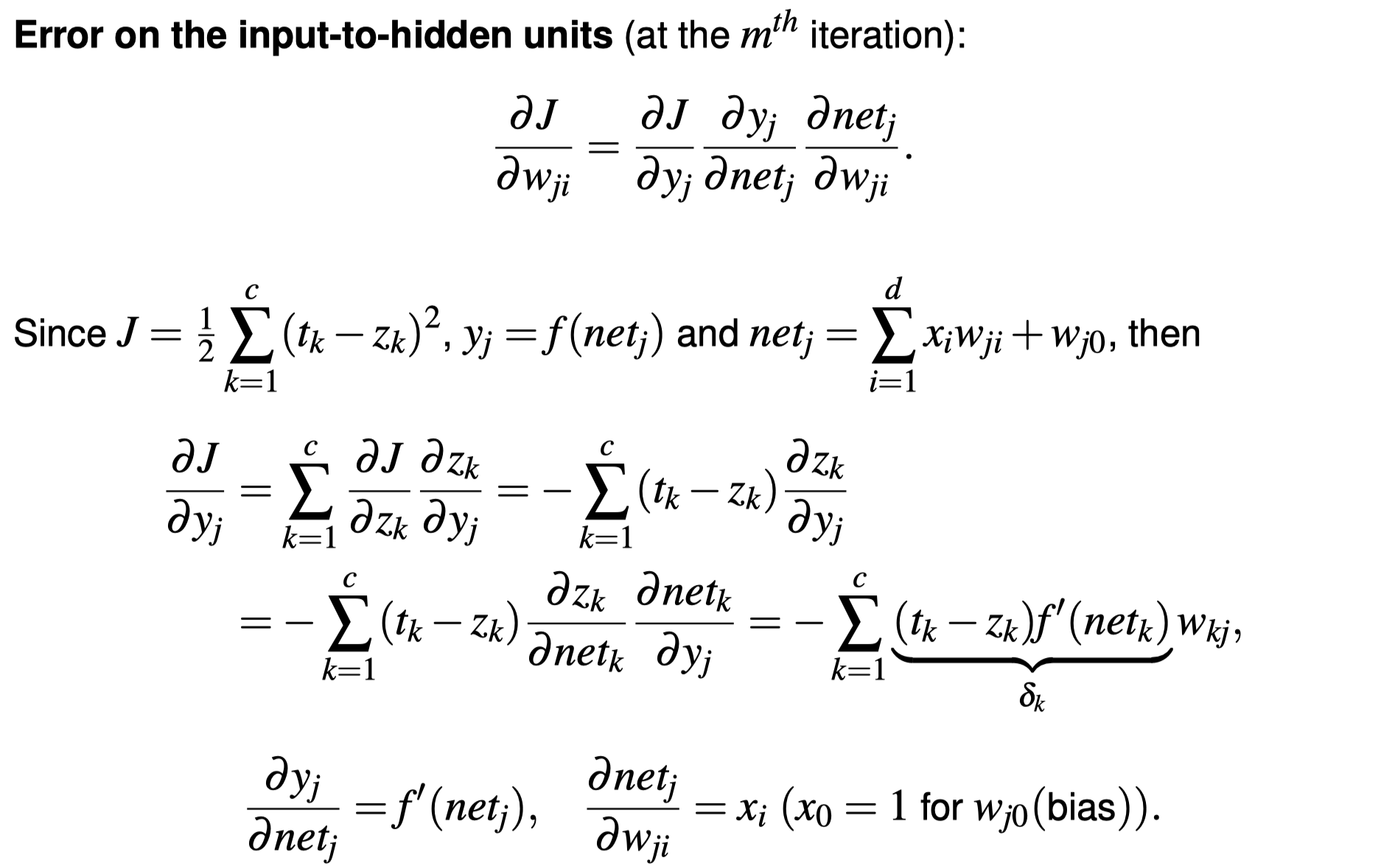
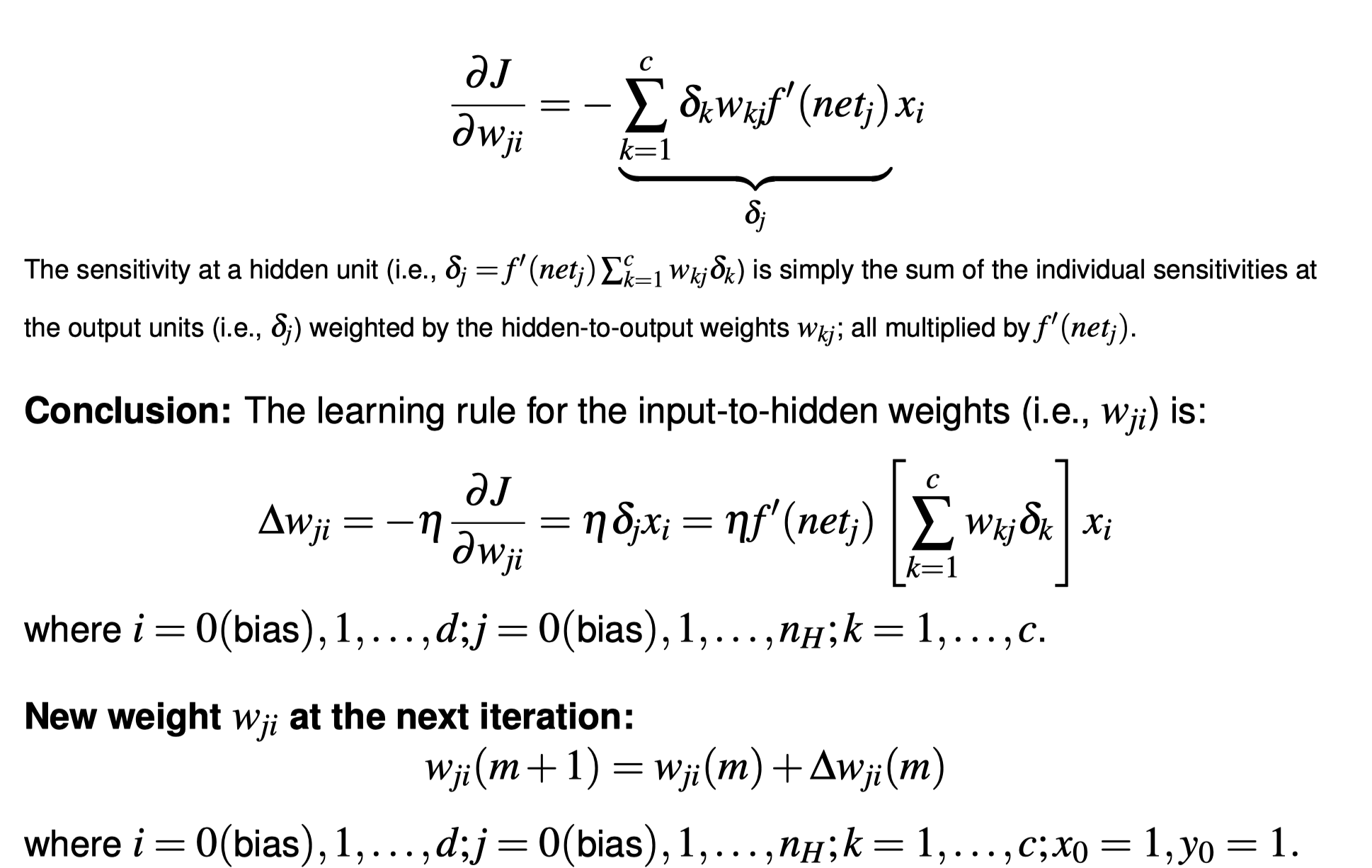
Backpropagation Algorithm Python Code
1
2
3
4
5
6
7
8
9
10
11
12
13
14
15
16
17
18
19
20
21
22
23
24
25
26
27
28
29
30
31
32
# Backpropagation Algorithm
x = [0.4,-0.4]
net = -1.0633
y_pred = -8.9918
y = -5
m = -0.1974
# learning rate
n = 0.3
# d_m = ∂cost/∂m = ∂cost/∂f(mx+b) * ∂f(mx+b)/∂(mx+b) * ∂(mx+b)/∂m
d_m = d_cost(y_pred,y)*d_sym_sigmod(net)*net
m_new = -n*d_m + m
result = np.round([(net,y,y_pred,d_cost(y_pred,y),1,net,d_m,m_new)],4)
pt = PrettyTable(('net','y','y_pred','∂cost/∂f(wx+b)','∂f(wx+b)/∂(wx+b)','∂(wx+b)/∂w','d_m','m_new'))
for row in result: pt.add_row(row)
print(pt)
y_2 = -2
m_2 = 1.6
w = 5
a = 0.4
# d_w = ∂cost/∂w = ∂cost/∂f(m*g(wx+b)+b) * ∂f(m*g(wx+b)+b)/∂(m*g(wx+b)+b) * ∂(m*g(wx+b)+b)/∂g(wx+b) * ∂(g(wx+b))/∂(wx+b) * ∂(wx+b)/∂w
d_w = d_cost(y_pred,y)*m_2 * d_sym_sigmod(-0.2) * x[0]
w_new = -n*d_w + w
result = np.round([(net,y,y_pred,d_cost(y_pred,y),d_sym_sigmod(net),m_2,d_sym_sigmod(a),x[0],d_w,w_new)],4)
pt = PrettyTable(('net','y','y_pred','∂cost/∂f(m*g(wx+b)+b)','∂f(m*g(wx+b)+b)/∂(m*g(wx+b)+b)','∂(m*g(wx+b)+b)/∂g(wx+b)','∂(g(wx+b))/∂(wx+b)','∂(wx+b)/∂w','d_w','w_new'))
for row in result: pt.add_row(row)
print(pt)
Output
1
2
3
4
5
6
7
8
9
10
+---------+------+---------+----------------+------------------+------------+--------+---------+
| net | y | y_pred | ∂cost/∂f(wx+b) | ∂f(wx+b)/∂(wx+b) | ∂(wx+b)/∂w | d_m | m_new |
+---------+------+---------+----------------+------------------+------------+--------+---------+
| -1.0633 | -5.0 | -8.9918 | -3.9918 | 1.0 | -1.0633 | 1.6161 | -0.6822 |
+---------+------+---------+----------------+------------------+------------+--------+---------+
+---------+------+---------+-----------------------+--------------------------------+-------------------------+--------------------+------------+---------+--------+
| net | y | y_pred | ∂cost/∂f(m*g(wx+b)+b) | ∂f(m*g(wx+b)+b)/∂(m*g(wx+b)+b) | ∂(m*g(wx+b)+b)/∂g(wx+b) | ∂(g(wx+b))/∂(wx+b) | ∂(wx+b)/∂w | d_w | w_new |
+---------+------+---------+-----------------------+--------------------------------+-------------------------+--------------------+------------+---------+--------+
| -1.0633 | -5.0 | -8.9918 | -3.9918 | 0.3808 | 1.6 | 0.8556 | 0.4 | -2.4552 | 5.7366 |
+---------+------+---------+-----------------------+--------------------------------+-------------------------+--------------------+------------+---------+--------+
RBF network output unit Python Code
1
2
3
4
5
6
# RBF network output unit
w = [-2.5027,-2.5027]
b = 2.8413
z = np.dot(np.transpose(y),np.transpose([w])) + b
np.set_printoptions(suppress=True)
print(z)
Output
1
2
3
4
[[-0.00010361]
[ 0.99991625]
[ 0.99991625]
[-0.00010361]]
Continue Python Code
1
2
3
4
5
6
7
# m * w = z, get w
m = np.transpose(np.append(y,np.array([[1,1,1,1]]),axis=0))
z = np.array([[0,1,1,0]])
print('Z:\n',z)
print('Y:\n',m)
w = np.dot(np.dot(np.linalg.inv(np.dot(np.transpose(m),m)),np.transpose(m)),np.transpose(z))
print('W:\n',w)
Output
1
2
3
4
5
6
7
8
9
10
11
Z:
[[0 1 1 0]]
Y:
[[1. 0.13533528 1. ]
[0.36787944 0.36787944 1. ]
[0.36787944 0.36787944 1. ]
[0.13533528 1. 1. ]]
W:
[[-2.5026503 ]
[-2.5026503 ]
[ 2.84134719]]
Comments powered by Disqus.